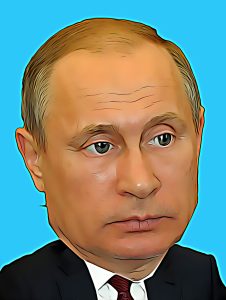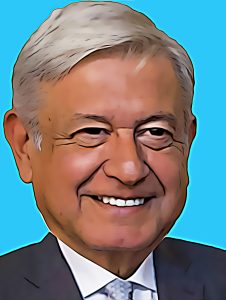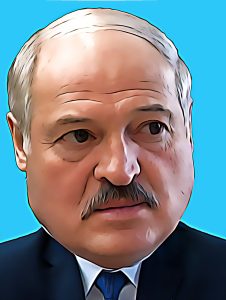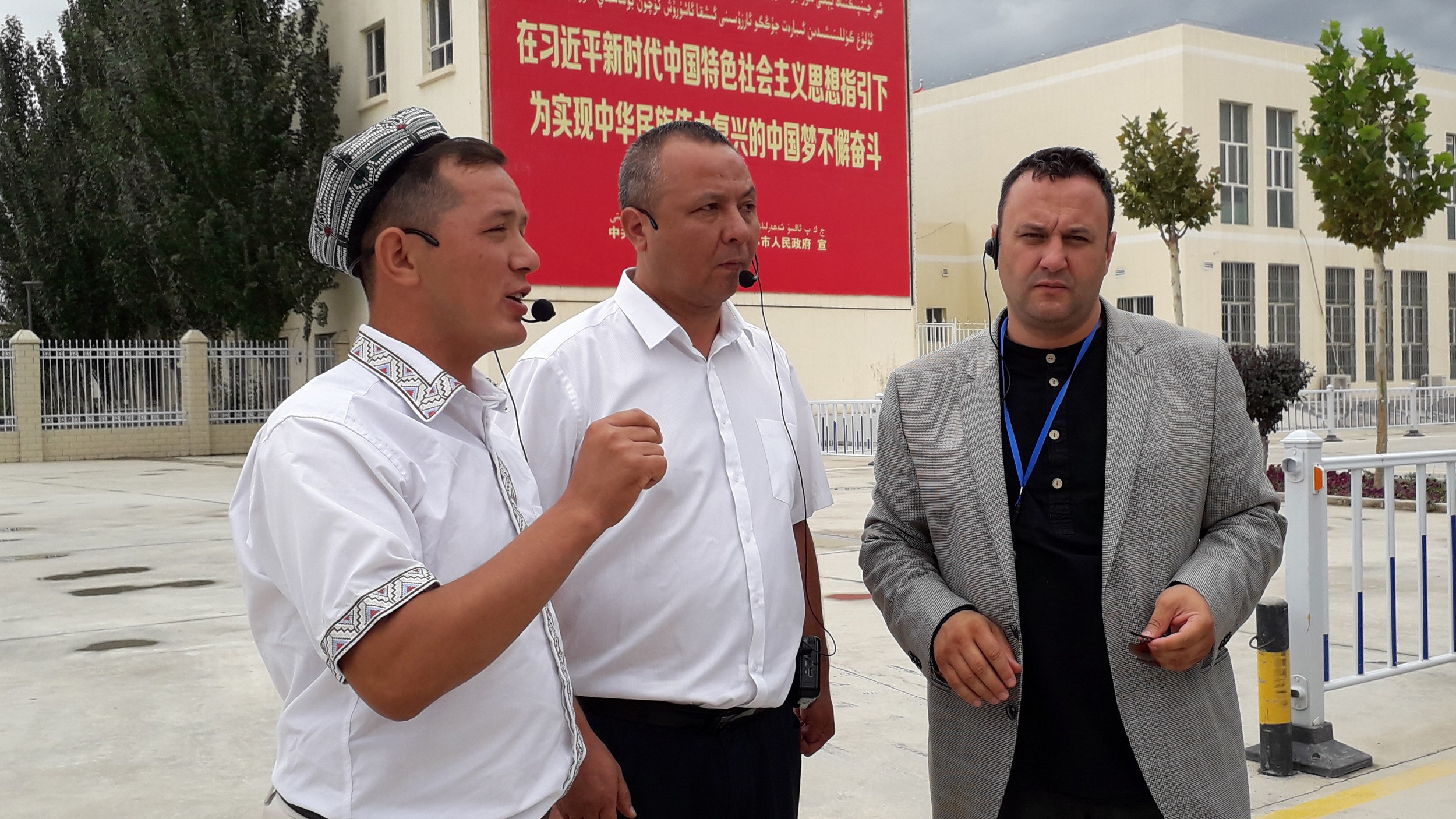1 Dec 2022 | Russia, Tyrant of the Year 2022
 Vladmir Vladimirovich Putin is the tyrant’s tyrant in more ways than one. Over the two decades he has dominated Russian politics as president and prime minister, he has set a new standard in the brutal oppression of opponents at home and abroad. His illegal invasion of Ukraine on 24 February has had a devastating effect on the global economy and turned Russia into a global pariah. But he has also been a consistent champion of other tyrants, whether it is Ayatollah Khamenei, the supreme leader of Iran, President Assad of Syria or his closest ally in the region, President Lukashenska of Belarus.
Vladmir Vladimirovich Putin is the tyrant’s tyrant in more ways than one. Over the two decades he has dominated Russian politics as president and prime minister, he has set a new standard in the brutal oppression of opponents at home and abroad. His illegal invasion of Ukraine on 24 February has had a devastating effect on the global economy and turned Russia into a global pariah. But he has also been a consistent champion of other tyrants, whether it is Ayatollah Khamenei, the supreme leader of Iran, President Assad of Syria or his closest ally in the region, President Lukashenska of Belarus.
The horrors perpetrated by the army sent to Ukraine in 2022 by Putin are too many to catalogue here. But they include torture and summary execution, as evidenced from the mass graves of Bucha, the forced deportations of citizens of occupied territories in the east of the country, indiscriminate attacks on civilian targets such as the maternity hospital in Mariupol and sexual violence used as a weapon of war. As winter sets in his forces have targeted power facilities, leaving many Ukrainians without light, heat and water in freezing conditions.
Meanwhile, in Russia itself the independent media has been crushed, with many journalists silenced or forced into exile. New legislation has turned protesters into traitors. Even calling Russia’s intervention in Ukraine a war has been deemed a crime, with anyone convicted of spreading “false information” facing a 15-year prison sentence.
“Most tyrants only brutalise their own people or the countries they invade. But Putin is a truly global tyrant who has made the whole world a poorer place by strangling the supply of Russian oil and gas and Ukrainian grain. And he has made it a more dangerous place by bringing the threat of nuclear war to Europe. Tyrant of the year? More like tyrant of the century,” says Index’s editor-at-large Martin Bright.
1 Dec 2022 | Mexico, Tyrant of the Year 2022
 “He who has nothing to hide, has nothing to fear”. These were the words uttered by the Mexican president, Andrés Manuel López Obrador in a February 2022 press conference held the day after Heber López Vásquez, founder and director of the digital news outlets NoticiasWeb and RCP Noticias, was shot and killed. However this was not a call for greater transparency and action to respond to the ever-climbing rate of journalist murders in Mexico. He was publishing what he alleged were the confidential financial details of leading journalist, Carlos Loret de Mola, in response to the journalist’s reporting.
“He who has nothing to hide, has nothing to fear”. These were the words uttered by the Mexican president, Andrés Manuel López Obrador in a February 2022 press conference held the day after Heber López Vásquez, founder and director of the digital news outlets NoticiasWeb and RCP Noticias, was shot and killed. However this was not a call for greater transparency and action to respond to the ever-climbing rate of journalist murders in Mexico. He was publishing what he alleged were the confidential financial details of leading journalist, Carlos Loret de Mola, in response to the journalist’s reporting.
“This act of intimidation and the abuse of the presidential office would be egregious in any circumstance. However In Mexico, against a backdrop of rampant impunity and one of the worst track records for the safety of journalists, it is far worse than that,” says Index’s policy and campaigns officer Nik Williams. “According to the Committee to Protect Journalists, 151 journalists and press workers have been killed in Mexico since 1992. The causes of these murders are complex; but a messy tangle of narco-politics, organised crime, corrupt police and state officials and runaway impunity has made Mexico one of the most dangerous locations to be a journalist outside a warzone. In fact, so far in 2022, Mexico is second only to Ukraine for the number of journalists killed.
Since Obrador only came to power in 2018, it would be overly-simplistic to lay this solely at his feet. However, according to Article 19, attacks on the press have increased by 85% since he took power, with every single Mexican state witnessing such incidents for the first time in 2021.
When there is a culture of impunity and the devaluing of journalists, the scene is set for violence. It is this erosion of the civic fabric that makes Article 19’s director for Mexico and Central America: “His [Obrador’s] speech causes other political actors to replicate his attacks. These actors feel empowered and allowed to attack in the face of a narrative that presents the press as an adversary. We are in a war speech, where the enemy must be annihilated.”
After publicly leaking Carlos Loret de Mola’s alleged salary and potentially violating Article 16 of the Mexican Constitution in the process, Obrador labelled journalists who are critical of him as “thugs, mercenaries, sellouts” and “the real mafia.” This framing establishes a false and dangerous parallel between the free press and criminal enterprises, further emboldening threats that can soon escalate to violence.
Impunity, the like of which is found in Mexico, requires significant and proactive action to address. It is not something that will just right itself when no one is looking. It requires a commitment to the value of free expression. It requires action. According to Human Rights Watch, “[o]f the 105 investigations into killings of journalists conducted by the federal Special Prosecutor for Crimes Against Freedom of Expression (Feadle), since its creation in 2010, just six have led to homicide convictions.” What good is a dedicated prosecutor if the rate of convictions is so low? Not only is this a failure to the family, friends and colleagues of the murdered journalists whose killings are being investigated by Feadle, this is a signal to those seeking to silence critical reporting: you can continue uninterrupted and undisturbed. This weakening of the mechanisms by which journalists can be protected is also seen in the 2020 decision of the Mexican Congress and supported by Obrador, to eliminate the independent funding that supported the Federal Mechanism for the Protection of Human Rights Defenders and Journalists. Now the mechanism is dependent on the Interior Ministry to pay for protection measures, but funds have been consistently cut. Leading media freedom organisations and 14 members of US Congress have raised concerns about this, seemingly to no avail.
Williams says: “What Obrador sees as a war against the elites, we see as a war against journalists, and ultimately free expression. Without Obrador stepping forward and addressing the ingrained climate of fear and impunity, instead of fixating on those who report on uncomfortable facts, Mexican journalists will remain stuck in the crosshairs of those seeking their silence.”
1 Dec 2022 | Belarus, Tyrant of the Year 2022
 “You can usually tell the quality of a tyrant’s credentials by the number of people he has thrown in jail on spurious grounds and Europe’s last dictator, Alyanksandr Lukashenka, is no exception,” says Index associate editor Mark Frary.
“You can usually tell the quality of a tyrant’s credentials by the number of people he has thrown in jail on spurious grounds and Europe’s last dictator, Alyanksandr Lukashenka, is no exception,” says Index associate editor Mark Frary.
Lukashenka started his fifth term as president in August 2020, following an election that most credible observers believe was neither fair nor free.
According to the human rights organisation Viasna, the list of political prisoners has now grown to 1,442 people. “This includes our former Index colleague Andrei Aliaksandrau and his wife Irina Zlobina, who were sentenced to 14 years and nine years respectively in early October for ‘establishing an extremist formation’,” says Frary.
It seems that even the slightest hint of opposition to Lukashenka can see you head off to the country’s infamous prisons. In November, 69-year-old teacher Ema Stsepulyonak was given a two-year sentence for supposedly insulting the Belarusian leader following a police shoot-out at a Minsk apartment that left two people dead.
Lukashenka is clearly worried by such “extremists”. His government has started a growing list of people who are considered as such and anyone appearing on it are not allowed to hold public office, teach, publish writing or participate in military service. On one day at the end of October, Lukashenka’s regime added a frankly ridiculous 625 extremists to the list. “Belarus must be so dangerous with this many extremists, right?” asks Inna Kavalionak of Politzek.me in the winter 2022 edition of Index on Censorship magazine.
“Lukashenka’s fate is closely tied with that of his friend and neighbour Vladimir Putin,” says Frary. “In the illegal war in Ukraine, Lukashenka has allowed Belarus to be used as a launchpad for Russia’s soldiers into the country’s northern flank. He has also promised that ‘Europe will tremble’ if Belarus is attacked.”
By aligning himself with Putin, Lukashenka is firmly planting himself on the wrong side of history.
16 Nov 2022 | BannedByBeijing, China, News and features
Twenty-three years after writing his best known work, Red Star Over China, Edgar Snow returned to China in 1960 to investigate claims that a radical agrarian reform programme had resulted in devastating famine. “I diligently searched, without success, for starving people or beggars to photograph … I do not believe there is famine in China,” Snow wrote.
Snow was wrong. The famine in China was both real and devastating. It is estimated as many as 30 million died in it. Snow’s bias lens had ghostly echoes with Walter Duranty’s reporting from Ukraine, during the Holodomor, the mass famines engineered by Stalin. Only when faced with overwhelming evidence did he eventually concede that the genocide occurred, “to put it brutally – you can’t make an omelette without breaking a few eggs” he said.
In information vacuums, common during times of conflict such as the civil conflict in Syria, as well as in areas controlled by authoritarian regimes, reporting from independent journalists can quickly define or redefine the public’s perception of a regime or situation. While journalists can play a powerful role in challenging censorship and propaganda from the state, they can also act as the state’s servants. Such was the case for both Snow and Duranty, whose rose-tinted views of the countries impacted global perceptions. Herein lies the point – those who claim to be independent reporters can be incredibly useful to the state, sometimes more so than those working within state media, because the notion that they are independent carries with it a level of authority and weight.
The use of “junket journalism” to obscure reporting on crimes against humanity has only grown in prominence and sophistication. Nowhere has this been more evident than in China where the government has co-opted a range of journalists and social media influencers to help strengthen the CCP’s control over its narrative and obscure legitimate scrutiny of a number of important issues, most notably the genocide of the Uyghur population. Recent party documents and officials have emphasised the need to bolster the CCP political line, and inject positivity into the CCP and China’s image. Current President Xi Jinping said, “Wherever the readers are, wherever the viewers are, that is where propaganda reports must extend their new tentacles”.
A recent International Federation of Journalists (IFJ) survey confirmed that “China is conducting a media outreach campaign in almost every continent” with the 31 developed and 27 developing countries that participated in the survey similarly targeted. The researchers told the Guardian, “China is also wooing journalists from around the world with all-expenses-paid tours and, perhaps most ambitiously of all, free graduate degrees in communication, training scores of foreign reporters each year to ‘tell China’s story well’”.
While many other countries, including established democracies, have sought to influence and shape independent reporting through tours, capacity building opportunities and other tactics, the CCP’s overt prioritisation of journalism that “depends upon a narrative discipline that precludes all but the party-approved version of events” raises significant concerns as to its intentions.
In this effort to shape global news, the CCP is advantaged by its huge pockets. It has spent around $6.6 billion since 2009 on strengthening its global media presence, supposedly investing over $2.8 billion alone in media and adverts. Sarah Cook, NED reporter and researcher, emphasised that “no country is immune”.
This ambition is best summarised by the Belt and Road News Network (BRNN), which includes 182 media organisations from 86 countries as members, and a Council, which includes 26 countries, including Spain, France, Russia, Netherlands and the UK. The launch of the BRNN was announced in a paid advertorial in The Telegraph produced by People’s Daily. In September 2019, BRNN hosted a workshop for international journalists in Beijing as part of the 70th anniversary celebrations of the People’s Republic of China, which was organised in partnership with the State Council Information Office of China. It included a visit to the offices of People’s Daily, Xinhua News Agency and other “central media units”, as well as trips to “Shaanxi, Zhejiang, Guizhou and Guangdong provinces for interviews and researches in order to personally experience China’s unremitting efforts and fruitful results in poverty alleviation, ecological civilization, big data industry, urban planning, and independent intellectual property rights.”
While the workshop was attended by representatives from 46 mainstream media outlets from 26 Latin American and African countries, it would be overly simplistic to suggest that China is only focusing on countries from the global south. Since 2009, the China-United States Exchange Foundation (CUSEF) has taken 127 US journalists from 40 US outlets to China. This foundation has been identified as working with China’s United Front as highlighted by US Senator Ted Cruz, in a letter to the President of the University of Texas at Austin, who stated that “[t]oday, CUSEF and the united front are the external face of the CCP’s internal authoritarianism”.
The IFJ report notes that “the Chinese Embassy has sought out journalists working for Islamic media, organising special media trips to showcase Xinjiang as a travel destination and an economic success story.” Xinjiang and the treatment of Uyghur communities is a prominent area in which the CCP has focused its efforts. After a visit to Xinjiang, Harald Brüning, author and director of the Macau Post Daily, stated that “the anti-China forces’ allegations of genocide are preposterous judging by what the Macao journalists, most of whom had not visited the region before, saw and heard in Xinjiang.” In his piece, Brüning did not disguise the genesis of his trip, exclaiming in the third paragraph “[t]he extraordinarily well-organised tour took place at the invitation of the Office of the Commissioner of the Foreign Ministry of the People’s Republic of China in the Macao Special Administrative Region.” The piece is heavily framed around rebutting existing reporting – labelled in the piece as lies – including the use of forced labour in the cotton fields of Xinjiang, as well as decrying the “brutality the religious extremists and separatists [have] resorted to”.
However an all-expenses paid junket does not guarantee full control of a journalist’s coverage. Olsi Jazexhi (below), a Muslim Canadian-Albanian journalist and historian sought a way to travel to Xinjiang because he was sceptical of the dominant narrative in the West that Muslims were being oppressed in China. He approached the Chinese embassy in Albania who invited him on a trip to Xinjiang with other “China-friendly journalists”. Once in Xinjiang, Jazexhi was shocked by the detainees’ testimonies of having been jailed for simple expressions of their religious identity, such as reading the Quran or encouraging others to pray. In Urumqi, he was lectured by state officials who equated Islam with terrorism and was shocked by the number of empty mosques or those repurposed into stores.

Olsi Jazexhi (right) listens to a handler during a tour of a mosque in Aksu city, Xinjiang in August 2019. Photo: Provided by Olsi Jazexhi
Other journalists who have tried to move away from the organised tours have faced a number of difficulties. When journalists have attempted to film camps that the government has not previously cleared for access, they have been turned away by local authorities. Road works or car crashes suddenly block their way and when the journalists attempt to return the next day, the roadworks suddenly reappear again. Members of a Reuters crew reported being tailed by a rotating cast of plain-clothed minders and “within an hour of the reporters leaving their hotel in the city of Kashgar through a back gate, barbed wire was erected across the exit and fire escapes on their floor were locked.”
While influencing journalists can sometimes be difficult, the expansion of blogging and social media influencing has opened up another avenue for state intervention. Travel vloggers who visit authoritarian countries say they just want to educate their viewers and avoid politics. Irish travel vlogger Janet Newenham told Al Jazeera after a controversial visit to Syria that “every country deserves to be shown in a different way and in a positive light even if most stuff about there has always been negative”. However, what can seem innocuous can take on more explicit political implications. “A lot of these vloggers are saying they’re apolitical in this and I’m sure that they are but the issue is, when you’re entering a conflict zone, your direct presence there becomes political,” researcher and adjunct professor, Sophie Kathyrn Fullerton told Al Jazeera.
A similar trend is increasingly evident in China. “I’m here because lots of people, right now, outside of China, want to know what Xinjiang is like,” says British vlogger, The China Traveller, at the start of a video, which focuses on him sampling a variety of local food while Uyghur women appeared to spontaneously dance behind him. Videos of this genre can be seen as part of what has been labelled the CCP’s project to “Disneyfy” Xinjiang. Uyghur culture has been co-opted by the state and amplified as a tourist attraction to change the narrative and drown out reports of genocide against the Uyghur community. In another video, The China Traveller praises the central government for rebuilding sections of the city, while failing to address the government’s other influence on the Xinjiang skyline: the mass demolition of religious institutions.
While Chinese culture is celebrated by The China Traveller and other vloggers in Xinjiang, French photographer Andrew Wack had a different experience when he returned to the region in 2019. Speaking to Wired a year after his trip, Wack commented on the stark absence of “men aged 20 to 60, many of whom had likely been rounded up and herded into indoctrination camps”. Throughout his visit, he was followed by plain-clothes police officers “and at checkpoints he was sometimes asked to show his photographs. On one occasion, he was asked to delete images”.
Many vloggers and journalists obscure any coordination or funding from Chinese bodies, or underplay how it may affect their coverage. Lee Barrett, a British vlogger, states in a video, “we go on some sponsored trips to places … our accommodation is paid for, our travel is paid for … nobody tells us what to say, nobody tells us what to film”. Due to the opaque nature of these relationships, it is impossible to interrogate the influence this type of support has on the vloggers’ reporting. However at times this veil is lifted. In a number of popular videos, minders sent by the Chinese state to monitor another vloggers’ trip can be clearly seen monitoring their behaviour.
When the BBC’s lead China reporter, John Sudworth, was invited into Xinjiang’s ‘re-education’ camps, he was presented with a highly choreographed and Disneyfied presentation of Xinjiang culture, which apparently even moved the Chinese officials accompanying the BBC crew to tears. However, Sudworth’s commitment to “peer beneath the official messaging and hold it up to as much scrutiny as we could” led him to scrutinise everything, including scraps of graffiti written in Uyghur and Chinese. This approach has had lasting consequences; he now reports on China from abroad, having had his visa revoked.
In modern day China, independent reporting from foreigners is one of the few avenues left in order to scrutinise power beyond the dominant state narrative. However, through the funding and coordination of junkets, training opportunities and other tactics, the Chinese state has followed in the footsteps of Assad’s Syria to try and control the message these foreigners send out into the world. This turns the principles of journalism against itself and manipulates the free expression environment in favour of the state.
Edgar Snow remains venerated in China. In 2021, the Foreign Ministry spokesperson Hua Chunying proclaimed on Twitter: “China hopes to see and welcome more Edgar Snows of this new era among foreign journalists”. John Sudworth provides a powerful counterweight, reminding us that we must “peer beneath the official messaging and hold it up to as much scrutiny as we could”.
- The authors approached The China Traveller and Lee Barrett for comment for this article. No response had been received by the time of going to press.
 Vladmir Vladimirovich Putin is the tyrant’s tyrant in more ways than one. Over the two decades he has dominated Russian politics as president and prime minister, he has set a new standard in the brutal oppression of opponents at home and abroad. His illegal invasion of Ukraine on 24 February has had a devastating effect on the global economy and turned Russia into a global pariah. But he has also been a consistent champion of other tyrants, whether it is Ayatollah Khamenei, the supreme leader of Iran, President Assad of Syria or his closest ally in the region, President Lukashenska of Belarus.
Vladmir Vladimirovich Putin is the tyrant’s tyrant in more ways than one. Over the two decades he has dominated Russian politics as president and prime minister, he has set a new standard in the brutal oppression of opponents at home and abroad. His illegal invasion of Ukraine on 24 February has had a devastating effect on the global economy and turned Russia into a global pariah. But he has also been a consistent champion of other tyrants, whether it is Ayatollah Khamenei, the supreme leader of Iran, President Assad of Syria or his closest ally in the region, President Lukashenska of Belarus.


